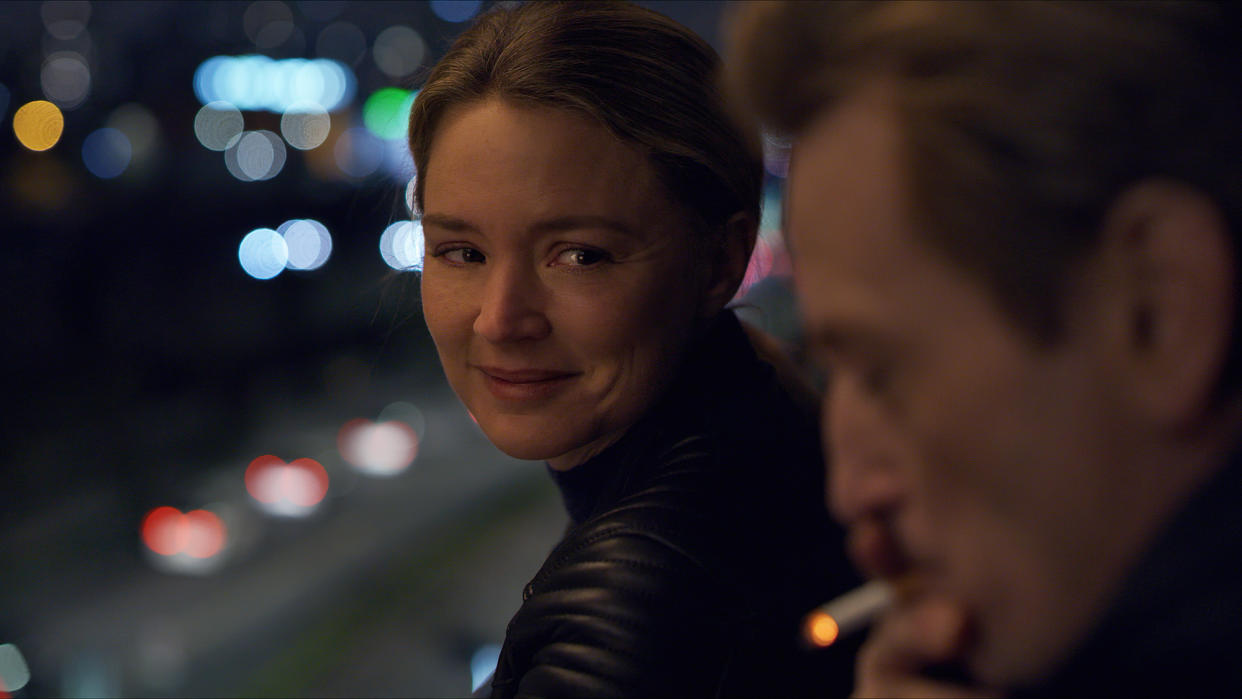‘Revoir Paris’ Review: Virginie Efira Shines As a Shooting Survivor in Artful Drama

- Oops!Something went wrong.Please try again later.
- Oops!Something went wrong.Please try again later.

Cinema can be a powerful tool for tackling contemporary anxieties, but it’s rarely done as sensitively and artfully as in Alice Winocour’s poignant mass shooting drama “Revoir Paris.” While one could argue that certain terrors should never be recreated, Winocour proves that with a sensitive touch, even the most harrowing of tragedies can be alchemized into a stirring contemplation of societal ills. Filtering the intensity through one woman’s struggle to piece together her memories of a fateful night, “Revoir Paris” tells a sobering story of survival, trauma, and the power of human connection.
Illuminated by a masterful performance by French actress Virginie Efira (“Benedetta,” “Other People’s Children”), “Revoir Paris” makes the unimaginable experience of surviving a violent attack beautifully real and painfully universal. The film never wallows in sentimentality or dwells in the violence (leave it to the French to be so matter-of-fact about a mass shooting), instead grounding the narrative in an investigation of memory that plays like a quiet thriller of the mind.
More from IndieWire
The bulk of the film is told through the eyes of Mia (Efira), a radio translator whose marriage to doctor Vincent (Grégoire Colin) has gone a bit stale. Out to dinner one evening, Vincent gets a supposedly urgent call from the office, leaving Mia to finish her half-eaten meal alone. Riding her sleek Triumph motorcycle home, she stops into a lively bistro “just for a drink until the rain subsides.” Winocour shoots this scene with an ominous attention to detail, urging the viewer to sit up and take note of each visual cue. Close-ups of a woman’s bare shoulder walking down a hallway or a birthday cake glistening with sparklers will come back not to haunt Mia, but as vital touchstones for her memory.
Sitting alone with her glass of wine, Mia observes two girlish Japanese tourists giggling over their escargot, and makes eye contact with the smoldering birthday guy as he gives her a very French once-over. When she returns from the bathroom, rapid gunshots send everyone careening to the floor, as her fellow diners perish before her eyes. Winocour frames the scene from Mia’s point of view, only showing the shooters in a flash of black boots and semi-automatic rifles. She crawls on the floor and plays dead before the screen goes black. Speaking to an unseen doctor, she says in voiceover: “What happened next is erased from my memory.”
The rest of that night unfolds in bursts as Mia follows her curiosity to piece together what happened to her. Re-routed on her bus ride home, she passes by the fateful cafe and feels suddenly compelled to revisit. A brusque but helpful waiter clocks her as a survivor, and keys her into a group that meets at the restaurant during off hours to process. It’s there that she meets Thomas (Benoît Magimel), the man from the birthday table, who survived with a badly shattered leg. Having checked her out, he remembers her vividly, and helps dislodge some details that lead her down a path of discovery.
Though it’s undoubtedly Mia’s story, the film takes on a choral quality as other characters narrate their own experiences of the night. We see the same events from slightly different angles just as Mia does, each voiceover revealing something new about the time she has blacked out. She is thrown into a tailspin of guilt and confusion when one woman accuses her of locking others out of the bathroom, and she is flooded with relief when her returning memory proves the woman wrong. More memories reveal more questions, and the third act of the film sends Mia searching for the undocumented kitchen worker who held her hand and told her they would make it.
Though the events in “Revoir Paris” are fictional, Winocour was drawn to the subject after her brother survived the November 13 attacks at the Bataclan theater. She was in contact with him for part of the night while he was in hiding, and later spent time on online forums where survivors tried to find strangers who had kept them safe or offered a kind word. In her director’s statement, Winocour writes: “I experienced for myself how events are deconstructed, and often reconstructed, by memory.”
One fellow survivor tells Mia about the diamond of trauma: The therapeutic idea that positive things can arise out of traumatic events, like friendships or love affairs, that would otherwise have never occurred. For Winocour, “Revoir Paris” is the creative fulfillment of that bittersweet promise. In making this film, she has gifted herself and others with a stirring portrayal of unimaginable terror, and a vital way to make sense of a senseless act.
Grade: B+
Music Box Films will release “Revoir Paris” in theaters on Friday, June 23.
Best of IndieWire
Sign up for Indiewire's Newsletter. For the latest news, follow us on Facebook, Twitter, and Instagram.

